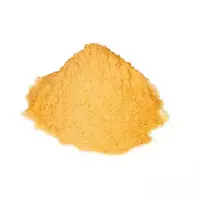Dry egg yolk

Chicken eggs are on the list of some of the most popular and widely distributed foods on the entire planet Earth. People began to eat bird eggs at the initial stage of the development of human civilization, when gathering, hunting and fishing were the main ways to extract food. Chicken eggs, however, like other species, consist of two main parts - protein and yolk.
It is worth noting that the quality composition of the protein, as well as the yolk of the eggs, is different. The yolk accounts for about 33%, the so-called liquid content of a chicken egg. The calorie content of the yolk is almost three times higher than the protein. The chemical composition of the yolk contains protein, fats, carbohydrates, as well as cholesterol.
Polyunsaturated, saturated and monounsaturated fatty acids are of particular value in the composition of the yolk. The yolk is enriched with linoleic, palmitic, oleic, linolenic, stearic and other acids, which play an important role in human life processes. Thanks to the colors, as well as the shape in ancient times, the egg yolk was identified with the sun.
What is noteworthy, already in those days our ancestors knew about the useful properties of eggs in general and yolks in particular. A vivid illustration of the importance of such a product as eggs can be judged by folk traditions. The pagans sacrificed eggs to their gods. Until now, all Orthodox Christians of the world on Easter traditionally paint eggs and serve to the festive table.
Eggs occupy an important place in the global culinary tradition. On the basis of eggs, a hundred myriad of various culinary products are made. Eggs are boiled, baked, fried, and also used raw or fresh. Without eggs, it is impossible to prepare many dishes, including drinks and pastries.
Nowadays, in the bakery and confectionery industry, such a product as egg powder or dry egg yolk, as well as protein, has become increasingly used. Dry egg yolk is in demand for several reasons. Perhaps the main advantages of dry egg yolk can be considered the distinctive consumer characteristics of the product.
Dry egg yolk for a much longer period of time, in comparison with a fresh product, can maintain its nutritional and nutritional properties. During manufacture of dry egg yolk whole chicken egg is separated into protein and yolk. at the further stage of yolk production, it undergoes special treatment, which includes several stages - homonization, pasteurization, filtration, as well as drying.
An inherently dry egg yolk is a powdered substance that is a food product with a uniform consistency as well as a pale yellow color. Usually, dry egg yolk is used to produce sauces as well as mayonnaise. It is noteworthy that only one kilogram of dry egg yolk can replace over a hundred fresh chicken eggs.
dry egg yolk 612 kCal
Energy value of dry egg yolk (Ratio of proteins, fats, carbohydrates - ju):
Proteins: 31.1 g (~ 124 kCal)
Fats: 52.2 g (~ 470 kCal)
Carbohydrates: 4.7 g (~ 19 kCal)
Energy ratio (bj | y): 20% | 77% | 3%
 Español
Español Français
Français Português
Português Русский
Русский 简体中文
简体中文 繁體中文
繁體中文 日本語
日本語 한국어
한국어 العربية
العربية Türkçe
Türkçe Қазақ
Қазақ Deutsch
Deutsch Italiano
Italiano Українська
Українська
